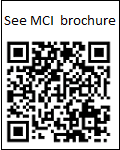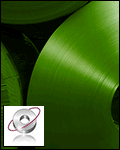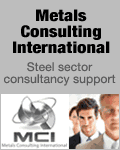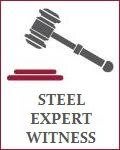History of Hyundai Steel 
Hyundai Steel (an affiliate of the Hyundai Motor Group) is a leading global steelmaker and the oldest steelmaker in South Korea. In 2022 the company produced almost 19 million tonnes of liquid steel, making it the 18th largest steelmaker in the world.
The timeline below covers the history of the firm.
- 1953: Firm was established.
- 1956: Blooming mill becomes operational.
- 1962: Firm is renamed as Incheon Steel.
- 1968: EAF shop completed.
- 1982: Heavy sections plant commences operation.
- 1987: Korean government decides to privatise Incheon Steel.
- 1990: Stainless cold rolling mill expansion completed.
- 1997: Sammi Specialty Steel files for court protection from creditors.
- 2000: Incheon Merger with Kangwon Industries.
- 2000: Incheon Acquires Sammi Specialty Steel.
- 2001: Incheon Steel joins Hyundai Group.
- 2001: Incheon Steel renamed INI Steel on 27-Jul-01.
- 2004: INI Steel acquires bankrupt Hanbo Steel.
- 2006: INI Steel renames itself Hyundai Steel Company.
- 2013: Merger with Hyundai Hysco's Cold Rolled Steel Division.
- 2015: Merger with Hyundai Hysco.
- 2016: Receives State Aid for restructuring of Incheon forging business.
- 2018: Hyundai Steel and other firms fined over price fixing.
- 2020: Considers sale of Seoul HQ building to secure cash.
- 2020: Contemplates exit from China, move to India.
- 2020: Signs hot stamping licensing agreement with ArcelorMittal.
- 2021: Fined by Fair Trade Commission (FTC) for scrap price fixing.
- 2021: Received ~2 trillion won ($1.9 billion) of orders in green bond issue.
- 2021: Cancels acquisition of 51% stake in Green Air Co from Hyundai Rotem Company.
- 2023: Announces planned sale of Beijing auto steel service centre (SSC).
- 2023: Decides to exit stainless steel market; Incheon to stop production.
- 2023: Decides to establish steel pipe subsidiary to improve competitiveness.
- 2024: Extends global sales network for green steel to Europe.
Notes
- 1953: The company was founded as the Korea Heavy Industry Corporation on 10th June.
- 1987: Privatisation was implemented through takeover by the Hyundai Group.
- 2000: At the time of the merger, Kangwon Industries produced ~800 kt / year of steel bar products.
- 2000: Incheon merger with Kangwon Industries and with Sammi Specialty Steel gave enlarged group a total production capacity of ~8 million tonnes. Acquisition of Sammi also gave Incheon capability to produce liquid stainless steel.
- 2004: Hanbo Iron and Steel acquisition was by a consortium involving INI Steel and reroller Hyundai Hysco. Final purchase price was ~$750m.
- 2010: By this point, Hyundai Steel was primarily an integrated (rather than EAF-based) steel works with its principal integrated production plant in Dangjin, South Chungcheong Province having capacity of 8 million tons.
- 2015: The merger of Hyundai Steel with its sister company Hyundai Hysco on 1st July 2015 turned Hyundai Steel into an integrated steel mill that produced automotive steels as a main product.
- 2016: Restructuring plan centred on the sell-off by Hyundai Steel of an electric furnace in Incheon, used to produce some 200 kt / year of ingots for forging. Forged ingots are typically used in the shipbuilding and wind power generation industries. Aid for this restructuring was permitted under South Korea's so-called One-Shot Act, a recently-enacted law designed to facilitate and encourage voluntary corporate restructuring.
- 2018: South Korea's six largest steel firms including Hyundai Steel Co and Dongkuk Steel Mill Co Ltd were fined a total of 119 billion won for fixing the price of steel reinforcement bar.
- 2020: Press reports in mid-2020 suggested that Hyundai Steel and other South Korean majors were considering closure of their steel factories in China and relocation to India. The same sources also stated that the Indian government would be keen to have steel giants such as Posco or Hyundai Steel set up steel factories in Andhra Pradesh.
- 2020: License agreement will allow Hyundai Steel to expand its hot stamping business from the Korean to the global marketplace.
- 2021: The anti-trust watchdog imposed a 90.9 billion won fine on Hyundai Steel, as well as fines of 49.9 billion won on Dongkuk Steel Mill, 49.6 billion won on Kisco, 42.9 billion won on YK Steel, 34.6 billion won on Daehan Steel, 31.3 billion won on Hankuk Steel and Mill and 638 million won on Korea Steel Shapes for collusion on scrap pricing.
- 2021: Hyundai Steel January green bond was more than eight times oversubscribed.
- 2021: The Green Air Co Ltd manufactures and distributes industrial gases. The firm supplies liquid oxygen, nitrogen, argon, hydrogen, liquefied carbon dioxide, and other related products for sale throughout South Korea. Hyundai Steel Company had agreed to acquire a 51% stake in the Green Air Co Ltd from Hyundai Rotem Company for KRW 81.2 billion on April 24, 2020. However, Hyundai Steel cancelled this transaction in April 2021.
- 2023: The Beijing SSC, known as Hyundai Steel Beijing Process, was built in 2002 near car manufacturing facilities owned by Hyundai Motor and Kia.
- 2023: Hyundai Steel commenced stainless steel production at its Incheon plant in 1990. Annual stainless steel output at the works peaked at 200,000 tonnes.
- 2023: Presently, Hyundai Steel operates a 1.1 mt/year steel pipe plant at the Port of Ulsan. With a new subsidiary, the parent company hopes to streamline the business portfolio.
- 2024: During 2024, Hyundai Steel signed a memorandum of understanding with Tawesco, a leading auto parts company in the Czech Republic; and with Eusider, an Italian company specializing in automotive steel plate processing.
Back to Knowledge Base Index

© 2001 -
2024 Steelonthenet.com. All rights reserved.
To contact us about this historic profile of Hyundai Steel please email info@steelonthenet.com.
To contact us about this historic profile of Hyundai Steel please email info@steelonthenet.com.







